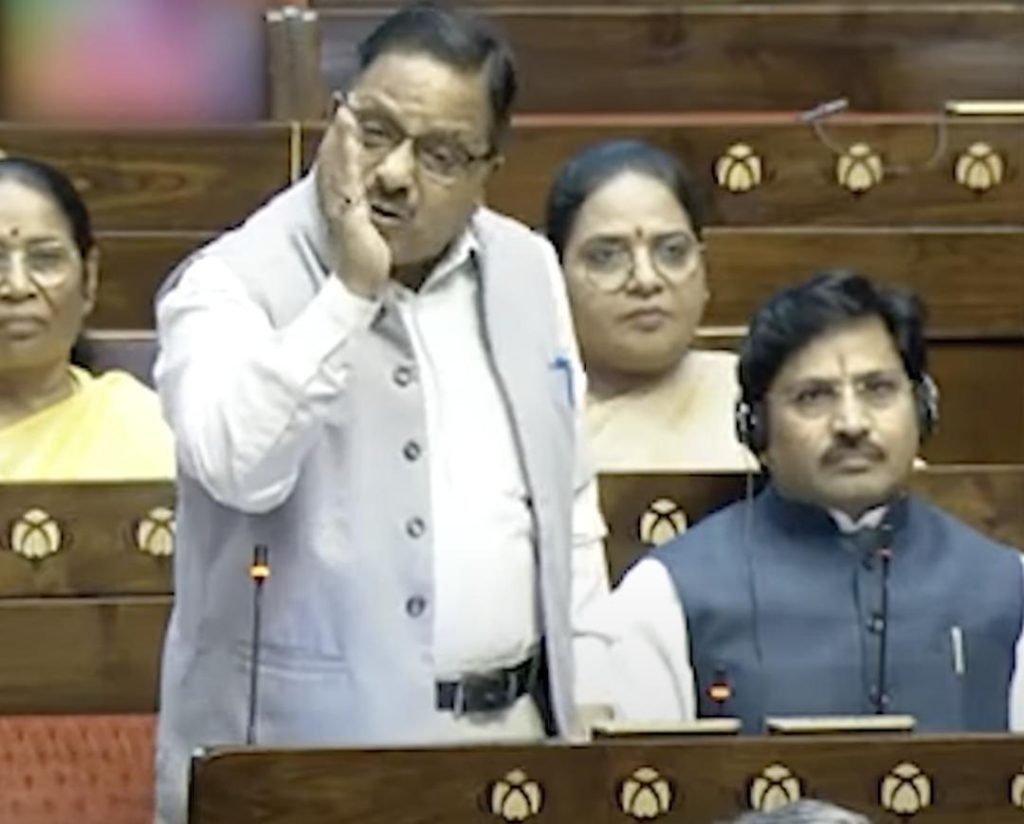
Should I read Quran & tell you what’s written in it: BJP MP Radha Mohan Das on Waqf Bill
In the recent discussion on the Waqf Bill, a heated debate took place in the Lok Sabha, with BJP MP Radha Mohan Das making a rather unexpected statement. As the debate raged on, Das asked the question that left many surprised – “Should I read the Quran and tell you what’s written in it?” This statement was made in response to the Waqf Board’s claims about their properties and the absence of written records.
For those who may not be aware, the Waqf Bill is a legislative proposal aimed at reforming the management of Waqf properties in India. Waqf refers to a system of religious and charitable endowments, where properties are dedicated to religious purposes. The proposed bill seeks to bring transparency and accountability to the management of these properties, which are currently managed by the Waqf Board.
Das’s statement was made in the context of the Waqf Board’s claims about the properties under their management. During the discussion, Das questioned the Board’s lack of written records for these properties. He stated, “The Quran says that even if one rupee is given to anyone, there should be a written record…And you say you have so many properties without a record.” This statement was met with opposition from the opposition parties, who argued that Das’s statement was an attempt to undermine the religious sentiments of the Muslim community.
But what does the Quran actually say about written records? And is Das’s statement an attempt to impose his own interpretation on Islamic texts? To understand the context behind Das’s statement, it is essential to delve deeper into the Quranic verses and their interpretation.
In the Quran, there are several verses that emphasize the importance of written records and documentation. For instance, in Surah Al-Baqarah, verse 282, it is stated, “O ye who believe! When ye deal with each other, in transactions involving future obligations in a fixed period of time, reduce them to writing.” This verse is often cited as evidence of the importance of written records in Islamic commerce and trade.
Similarly, in Surah Al-Nisa’, verse 68, it is stated, “O ye who believe! You are forbidden to inherit women against their will. Nor should you treat them with harshness, that ye may take away part of what ye have given them, except where they have been guilty of manifest immorality.” This verse is often seen as a reference to the importance of written contracts and agreements in Islamic law.
It is essential to note that these verses are part of a larger context that emphasizes the importance of justice, fairness, and transparency in all aspects of life. The Quranic emphasis on written records is not limited to commercial transactions or property ownership, but is rather a general principle that applies to all aspects of human interaction.
In the context of the Waqf Bill, Das’s statement can be seen as an attempt to highlight the lack of transparency and accountability in the management of Waqf properties. By citing Quranic verses that emphasize the importance of written records, Das is attempting to make a case for greater transparency and accountability in the management of these properties.
However, some critics have argued that Das’s statement is an attempt to impose his own interpretation on Islamic texts, and to undermine the religious sentiments of the Muslim community. This criticism is not entirely unfounded, given the sensitive nature of religious texts and the potential for misinterpretation.
In conclusion, Das’s statement about reading the Quran and telling what’s written in it is a complex issue that requires careful consideration of the context and the Quranic verses in question. While Das’s statement can be seen as an attempt to highlight the lack of transparency and accountability in the management of Waqf properties, it is also essential to acknowledge the potential risks of misinterpretation and the need for greater understanding and respect for religious texts.
Source:






